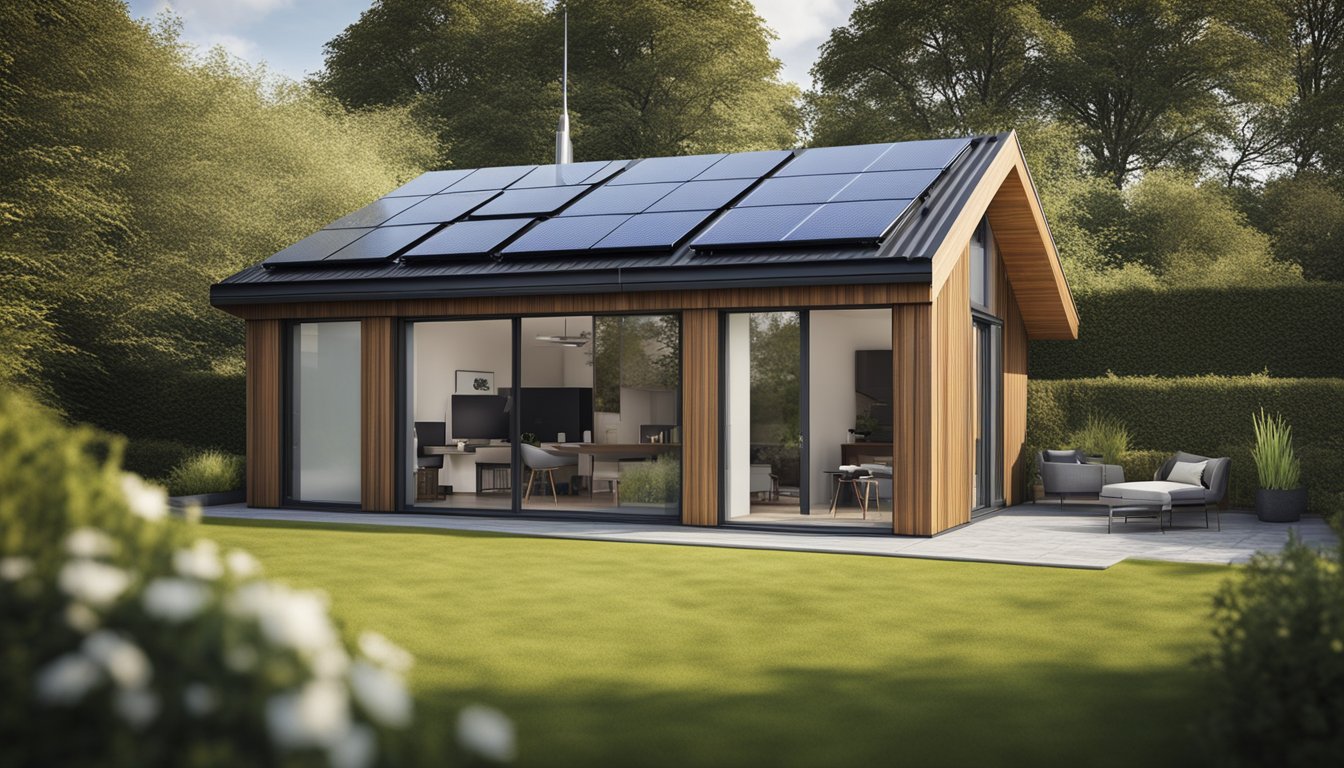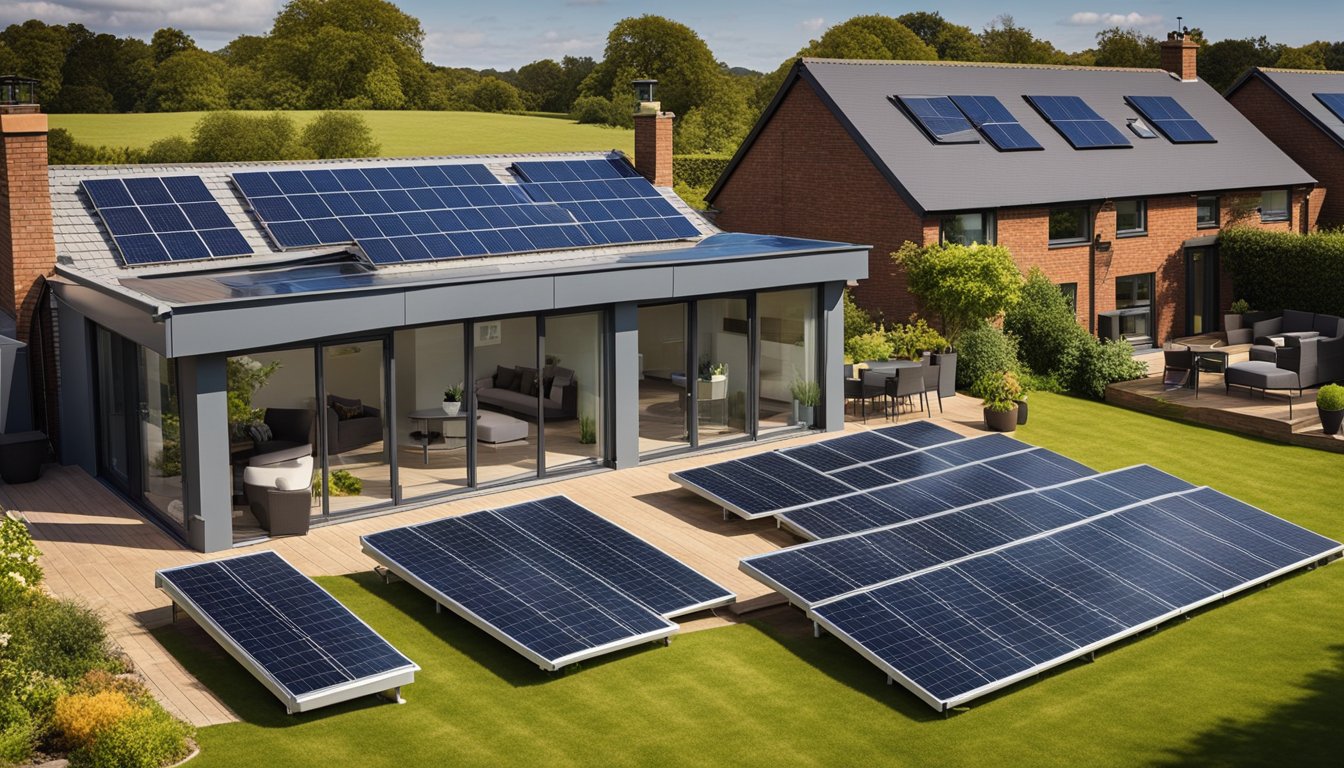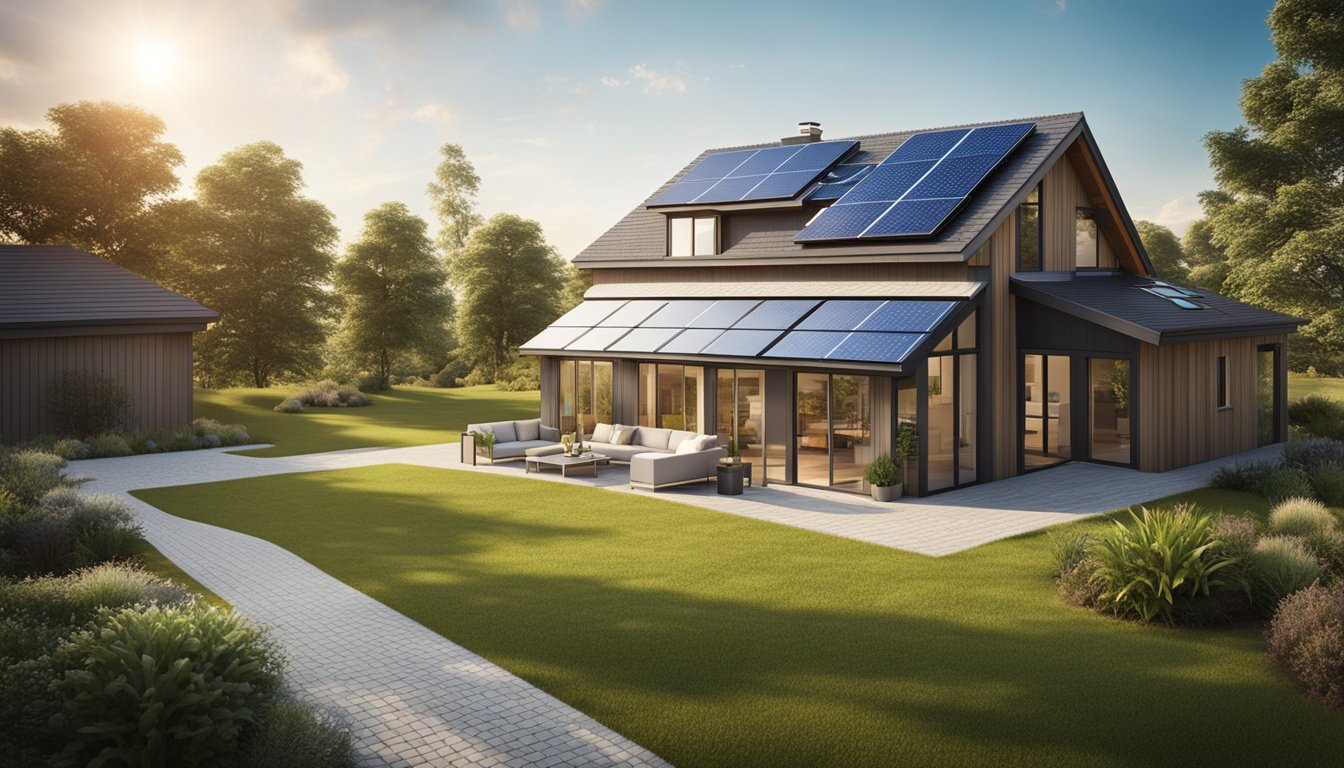Late updated: 14 Jan 2025 11:01
Written by: Eleanor Hartman
Innovative Eco-Friendly Home Heating Solutions in the UK: Exploring Sustainable Options
The shift towards eco-friendly home heating solutions is a crucial step in reducing our environmental impact and embracing sustainable living. Here in the UK, innovative systems are making it easier for us to heat our homes while minimising our carbon footprint. From solar thermal systems to advanced heat pumps, these technologies offer efficient and sustainable options for keeping homes warm.

As we explore these heating technologies, we find that they not only cut down energy consumption but also integrate effortlessly into our homes. Eco electric heating systems, for instance, offer modern alternatives that fit right into our existing frameworks. Additionally, skirting board heaters provide space-efficient solutions that complement our sustainable efforts.
Switching to these eco-friendly systems signifies a commitment to a greener future. It's clear that adopting these innovations will lead us to a more sustainable way of living, significantly reducing our greenhouse gas emissions and energy costs.
Key Takeaways
- UK innovations offer efficient eco-friendly heating options.
- These technologies reduce both energy use and carbon emissions.
- Implementing them at home supports sustainable living goals.
Exploring Eco-Friendly Heating Technologies
Choosing eco-friendly heating technologies can significantly reduce energy bills and carbon emissions. By harnessing natural and renewable energy sources such as sunlight, air, and organic materials, we can create energy-efficient and sustainable heating solutions.
Heat Pumps: Harnessing Natural Energy
Heat pumps are highly efficient as they transfer heat rather than generate it. Air source heat pumps extract heat from the outside air, even in cold temperatures, and are ideal for typical UK climates. Ground source heat pumps, also known as geothermal heat pumps, transfer heat from the ground, benefiting from stable ground temperatures.
Heat pumps require electricity but are still more energy-efficient than traditional heating systems. They can reduce carbon emissions significantly and may also be eligible for financial incentives like the Renewable Heat Incentive (RHI), which supports transitioning to renewable heating solutions. This not only benefits the environment but also provides long-term savings on energy bills.
Solar Heating Solutions
Solar thermal systems capture sunlight to heat water, offering a renewable way to warm our homes. These systems generally consist of solar collectors, situated on rooftops, that absorb solar energy and transfer it to a water storage tank.
Solar thermal systems can work efficiently even on cloudy days, making them suitable for the UK. While initial setup costs can be high, they reduce reliance on conventional heating sources and contribute to lower energy bills over time.
These installations might qualify for the Green Homes Grant, providing homeowners with financial support, making solar heating an attractive choice for eco-conscious individuals.
Biomass Boilers and Systems
Biomass boilers use organic materials like wood pellets and chips to generate heat. As a renewable heat source, they contribute to reducing carbon emissions and offer a sustainable alternative to fossil fuel-based systems.
Properly sourced biomass fuel is carbon-neutral, as the CO2 released during combustion is offset by the CO2 absorbed during the growth of the plants. Biomass systems can be efficient, providing consistent heat and hot water.
The Renewable Heat Incentive (RHI) may apply, helping offset the initial installation costs. This makes biomass boilers a viable option for those looking to balance eco-friendliness with effective home heating solutions.
Implementing Eco-Friendly Heating at Home

As we aim to reduce our carbon emissions and maximise energy savings, it's critical to explore efficient approaches. Insulation, innovative systems, and financial incentives play vital roles in making UK homes more sustainable.
Insulation and Efficiency
Proper insulation is foundational to any eco-friendly heating solution. Ensuring that walls, roofs, and floors are well-insulated helps retain heat, reducing the energy required to keep a house warm.
Double glazing on windows and doors further enhances this effect by lowering heat loss. This means less work for our heating systems, resulting in lower energy bills and a smaller carbon footprint.
Smart technology boosts efficiency by optimising heating schedules based on usage patterns. Programmable thermostats, for example, allow us to set precise heating zones. Infrared heating panels and low-temperature radiators can supplement traditional setups, providing targeted warmth with minimal energy consumption. Together, these steps contribute to a more energy-efficient and eco-friendly home environment.
Innovative Heating Systems
Innovative systems are transforming how we heat our homes. Heat pumps, utilising air, ground, or water, are an excellent renewable heating option. They extract heat from the surrounding environment, offering a low-carbon alternative to conventional heating methods.
Biomass boilers use organic materials, such as wood pellets, to produce heat. These systems are efficient and reduce reliance on fossil fuels. Underfloor heating provides consistent warmth with reduced energy consumption when paired with efficient systems. Electric radiators and solar thermal panels offer modern solutions, incorporating renewable energy sources in their operation.
By adopting these innovative heating technologies, we can heat our homes efficiently while significantly reducing carbon emissions. This shift towards innovative systems aligns with our commitment to environmental sustainability.
Government Incentives and Financial Considerations
Numerous government incentives are available to support eco-friendly heating solutions. The Green Homes Grant and the Renewable Heat Incentive are designed to make low-carbon heating more accessible. These programmes can help with installation costs, significantly reducing the financial burden for homeowners.
Financial planning is crucial for long-term eco-friendly management. While installation costs may be high, the potential for energy savings makes these options attractive investments. By taking advantage of available incentives and carefully considering future savings, we are better positioned to create environmentally friendly heating systems that contribute to sustainable living.
Frequently Asked Questions

As energy costs rise and environmental concerns grow, many homeowners in the UK are actively seeking sustainable and cost-effective heating solutions. This section will address some common questions about eco-friendly heating systems, evaluating their cost, suitability, and advancements.
What are the leading sustainable heating systems currently available in the UK?
In the UK, popular sustainable heating systems include heat pumps, biomass boilers, and solar thermal panels. These systems utilise renewable energy sources to provide efficient heating, significantly cutting carbon emissions compared to conventional systems.
How cost-effective are innovative eco-friendly heating solutions for UK homes?
Eco-friendly heating solutions often come with higher initial costs. However, they can lead to substantial savings over time through reduced energy bills and minimal maintenance costs. Additionally, government incentives may be available to further offset initial expenses.
Which eco-friendly heating options are most suitable for older UK properties?
Older properties in the UK might benefit most from hybrid systems, which combine newer renewable technologies with existing heating systems. Ground source heat pumps and biomass boilers can also be particularly effective, provided necessary property modifications are feasible.
What advancements have been made in the eco-friendly heating sector for UK commercial buildings?
Recent advancements in the sector for commercial buildings include integrated smart system controls and improved efficiency of large-scale heat pumps. Battery storage innovations further enhance energy efficiency, allowing businesses to utilise stored renewable energy during peak demand times.
What is considered the most cost-efficient and eco-friendly way to heat a home in the UK?
Heat pumps are increasingly recognised as the most cost-efficient and eco-friendly heating solution for UK homes. They offer reduced energy bills over time and lower environmental impacts, especially when powered by renewable electricity sources.
How do the latest eco-friendly heating technologies compare in terms of efficiency and sustainability?
The latest heating technologies provide significant improvements in efficiency and sustainability. Advances in heat pump design and solar thermal energy capture, along with smart technology integration, enable better performance and lower emissions compared to older systems.